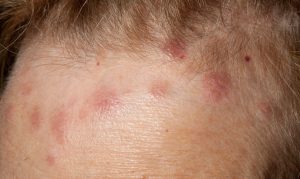HT6. When to Worry About Neck Lumps and What to Do About Them
Neck lumps, particularly swollen lymph nodes, can be a common occurrence for many people. These lumps often appear during or after an infection and typically resolve on their own. However, in some cases, they may signal a more serious underlying condition that requires medical attention. Understanding the function of lymph nodes, the causes of their swelling, and when to seek help is crucial for maintaining good health.
Understanding Lymph Nodes and Their Role
Lymph nodes are small, bean-shaped structures that are part of the lymphatic system—a critical component of the body’s immune defense. They act as filters, trapping viruses, bacteria, and other harmful substances that travel through the lymph fluid. Located throughout the body, lymph nodes are especially concentrated in the neck, armpits, and groin.
When the body detects an infection or other foreign invaders, lymph nodes may become swollen as they increase activity to fight off these threats. This swelling is often a sign that the immune system is doing its job effectively.
Common Causes of Swollen Lymph Nodes in the Neck
Swollen lymph nodes in the neck are most often caused by infections. These may include:
- Viral infections such as the common cold, flu, or mononucleosis
- Bacterial infections like strep throat or an ear infection
- Dental infections including abscessed teeth or gum disease
- Skin infections near the head or neck
In these cases, lymph nodes may feel tender or sore and are usually soft to the touch. The swelling typically subsides within a couple of weeks once the infection clears.

When Neck Lumps Could Indicate Something More Serious
Although most cases of neck lumps are harmless and temporary, some may be signs of more serious medical issues. Conditions that can cause persistent or abnormal swelling of the lymph nodes include:
- Cancer: Lymphoma, leukemia, or metastasis from other cancers (such as head, neck, or breast cancer)
- Autoimmune diseases: Such as lupus or rheumatoid arthritis
- Tuberculosis or other chronic infections
- HIV/AIDS
Swollen lymph nodes that are hard, fixed in place, painless, or rapidly enlarging may raise concern and warrant further medical investigation.
Symptoms That Should Prompt Medical Attention
If you discover a lump in your neck, monitoring its characteristics over time is essential. You should seek a doctor’s evaluation if:
- The swelling lasts longer than two weeks
- You experience unexplained weight loss, persistent fever, or night sweats
- The lymph node feels firm or immobile
- Multiple swollen nodes appear across different areas of the body
- There are accompanying symptoms such as fatigue, difficulty swallowing, or a persistent sore throat
These symptoms could suggest a condition that requires timely diagnosis and treatment.

What to Expect During a Medical Evaluation
When you visit a healthcare provider about a neck lump or swollen lymph node, they will typically begin with a physical examination to assess the size, texture, and location of the swelling. Your medical history will also be reviewed, especially recent infections or systemic symptoms.
If necessary, the doctor may order additional tests, such as:
- Blood tests to check for infection, inflammation, or markers of cancer
- Imaging scans such as ultrasound, CT scan, or MRI to get a clearer view of the lymph node and surrounding tissues
- Biopsy (needle or surgical) to examine lymph node tissue under a microscope for signs of cancer or other abnormalities
These evaluations help determine whether the cause is benign or if further treatment is necessary.

Treatment Options Based on the Underlying Cause
The treatment for swollen lymph nodes depends entirely on the root cause:
1. Infections
If the swelling is caused by a viral infection, rest and hydration are usually sufficient. Over-the-counter medications like acetaminophen or ibuprofen may help reduce discomfort and inflammation. For bacterial infections, antibiotics may be prescribed.
2. Autoimmune Disorders
When an autoimmune disease like lupus or rheumatoid arthritis is responsible, treatment typically involves immunosuppressive or anti-inflammatory medications to control the immune response.
3. Cancer
If the lymph node swelling is due to malignancy, treatment options may include:
- Chemotherapy
- Radiation therapy
- Surgical removal of affected lymph nodes
- Targeted therapies depending on the cancer type
Early diagnosis significantly improves the effectiveness of treatment, especially for cancers like lymphoma and leukemia.
Prevention and Monitoring
While not all causes of swollen lymph nodes can be prevented, certain habits can help maintain a healthy immune system and reduce the likelihood of persistent or dangerous swelling:
- Practice good hygiene to avoid infections
- Stay up to date on vaccinations
- Seek dental care regularly
- Avoid exposure to people with contagious illnesses
If you frequently notice swollen lymph nodes or have a history of related conditions, keep a symptom journal to track patterns, and share this information with your doctor.

Conclusion
A lump in the neck can understandably cause concern, but it’s important to remember that in most cases, it’s a temporary reaction to a minor infection. However, persistent, painful, or hard lumps—especially when accompanied by systemic symptoms—should not be ignored. Understanding the potential causes and seeking prompt medical attention when necessary can help ensure the best possible outcome.
By knowing when to worry and what steps to take, you can protect your health and catch potential issues early. If in doubt, it’s always wise to consult a healthcare professional for guidance.
Sources:













